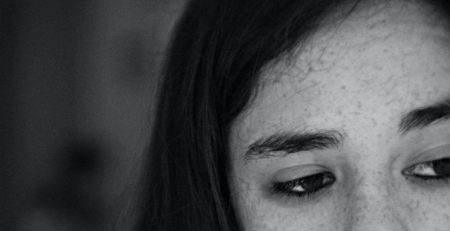Mental health is often discussed and associated with mental health issues, mental illnesses, and mental disorders, which can be framed as something negative. Most people might think that because they don’t have these issues, they are mentally “healthy” or good. I like to help my clients to escape that type of thinking. Just as happiness is not the absence of sadness, mental health is not the absence of mental disorders. There’s something more to it.
What is mental health?
So, what is mental health exactly? It can be broadly defined as the successful performance of mental function, resulting in productive activities and include fulfilling relationships, being able to cope with adversity, and more broadly, being able to have an experience of fulfillment and fullness. There are two parts to mental health: (1) the mental part, which include cognitive and emotional aspects and affects the way we think and the way we feel and (2) the subsequent outcomes/behaviours, or how we see the fulfillment in our lives.
What does being mentally healthy look like?
The answer to this question really comes down to you: what do you want in your life? What do you want or hope that your life might look like? For some, it could mean having close, intimate relationships with friends that are supportive. For others, it might mean being able to open up to family or partners about what is going on inside of them. It might even be something as simple as being able to feel happier; or as we draw into a New Year, it might be to discipline yourself in going to the gym, eating, or in spiritual practices. As you think about these goals you might even wonder to yourself, why haven’t I been able to do these things? What is it that keeps me from doing this? One of the techniques I use in psychotherapy is called Focusing, and we take these questions and their answers, and we unpack the feelings that come up.
The human brain and mind is a very interesting thing and oftentimes, it automates a lot of things in our lives, so that much goes on without us having to even think about it. For example, you hardly ever need to think about breathing and when you do try, you might actually find it harder to do so. The same goes for our daily interactions with others, in our experiences, there is a lot happening underneath our awareness, that leads us to draw conclusions. Sometimes these “habits” (we’ll call them) can be helpful and other times it can be unhelpful, and helpful habits can become unhelpful in different contexts of life, in different seasons of life. This is where psychotherapy comes in.
How does counselling/psychotherapy fit into all of this?
As opposed to thinking of counselling or psychotherapy as something reserved for those who have mental health issues or have mental disorders, like depression or anxiety, it is also a way to improve your overall sense of fulfillment. To add to that, depression and anxiety is not something that you either do or do not have, it exists on a scale, and we all experience sadness and worry to a certain degree and some more than others.
By coming to talk to a psychotherapist, we can work together to explore some of those underlying “habits” that exist inside all of us and as we begin to gain a better understanding of ourselves, it becomes easier to change some of these things. As with most habits, the longer they have been around, the longer it can take to change them, but with a desire to want to change, it is possible. Some of them may be stronger and “more severe” that leads you to worry more than someone else. The hope of psychotherapy is to begin to move us closer to mental healthiness, from wherever you are, we strive to meet you there and together, move towards being able to live a fuller and healthier life.
What next?
Now that we’ve gained a different perspective of what it means to be mentally healthy, I hope that it changes how we see others and begin to shift away from seeing mental health topics as being simply reserved for those who struggle with it. Not everyone might feel comfortable with seeing a psychotherapist, but here’s an analogy.
Just as you might go in to see a doctor for a physical check-up, even if nothing is wrong, it can be just as helpful to see a psychotherapist for a check-up or check-in to see how you are doing mentally, and work on some things that can improve mental healthiness
Complete Balance offers psychotherapy services from our two registered psychotherapists:

Ambrose Ty (MSc, MDiv, RP)
Ambrose specializes in therapies for Marital and premarital issues, depression, trauma and PTSD. He uses a variety of techniques and modalities including Cognitive-Behavioural Therapy (CBT), Emotionally-Focused Therapy, Trauma-informed Therapies, Mindfulness and more.

Melody Yeung (RP, CCC)
Melody specializes in therapies for Anger management, interpersonal relationships, children, adolescents, and anxiety & depression. She uses a variety of techniques and modalities including Narrative Therapy, Motivational Interviewing, Interpersonal Therapy, Solution-Focused and more.
Want to learn more? Book a free consultation with our psychotherapists! You can email us at info@mycompletebalance.com or call us at 416-901-2873.













Leave a Reply
You must be logged in to post a comment.